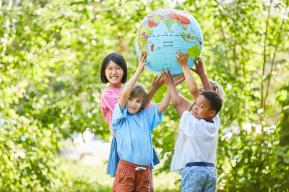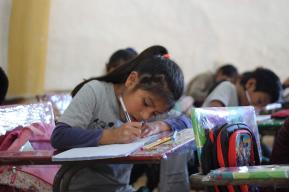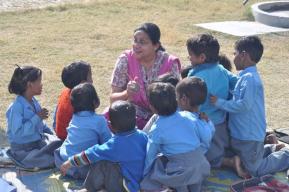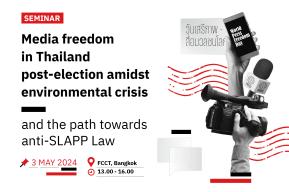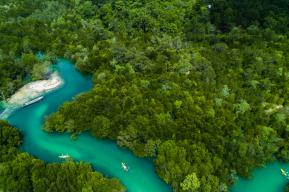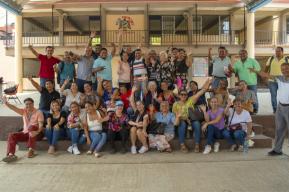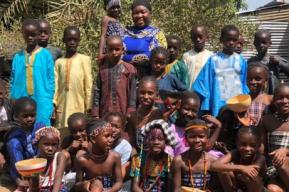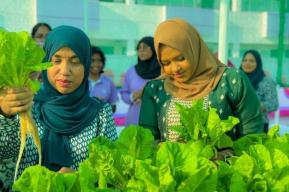News
COP27: UNESCO launches global survey report on youth demands for climate change education & mobilizes stakeholders for the Greening Education Partnership
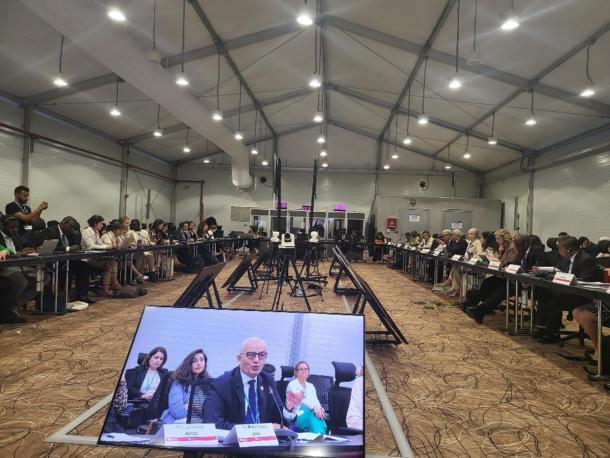
The complexities of climate change require a holistic approach, which UNESCO provides though its longstanding expertise combining science, education, culture, and communication and information. For this reason, UNESCO recently organized and joined a series of climate change education events at the United Nations Climate Change Conference (COP27) which took place from 6 to 19 November 2022 in Sharm el-Sheikh, Egypt.
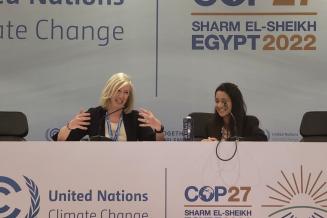
Youth demand quality climate change education
The key role of education in addressing climate change was underscored by UNESCO and partners, and in particular as UNESCO launched its global survey report, Youth demands for quality climate change education, which reveals that 70% of young people question the quality of the climate change education they receive. Recalling 2021 Berlin declaration on ESD which called for “climate action as a core curriculum component,” UNESCO organized a survey and series of consultations with more than 17,000 young people from 166 countries as a basis for the report.
The issue of climate change is a matter of life and death
Learning about climate change is a right, teaching about climate change is a right.
The survey revealed that 27% of respondents cannot explain what climate change is, 41% can only explain the broad principles, and 2% do not know anything about it. One out of five respondents report that they do not feel prepared for climate change based on what they have learnt at school.
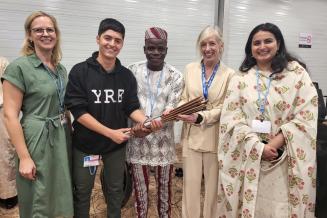
Youth are also bored of passive learning and “creating posters about climate change”. 60% of young people surveyed noted they learn about climate change largely in the classroom. Many want to go beyond school walls to learn through experiential, project-based activities, including working with local organizations and experts, and less through ‘creating posters and paintings about climate change’. 77% strongly agree that climate change should be taught by people from various backgrounds, to address the complexity of the issue.
Young people also expressed a desire to learn about who bears the historical responsibility for climate change. They are also keen to learn about the latest discussions on climate solutions, ranging from how to respond to natural disasters and help restore nature, to learning about alternative economic systems such as the circular economy, which could help them tackle the climate crisis. To address widespread eco-anxiety, youth suggest that schools should incorporate more diverse pedagogy, art, music, local cultural performances, and storytelling into curricula.
As we live in this bio-diverse world, we need to have a very holistic look at how we can try to find solutions that are holistic to this issue, not fragmented.
UNESCO supported the arrival of the Running Out of Time Relay Campaign, organized by Foundation for Environmental Education to deliver the voices of over 800,000 young people calling for universal quality climate change education from Glasgow to Sharm el-Sheikh, crossing UNESCO world heritage sites, biospheres, and cities; schools; at-risk locations; and climate change projects at the forefront of the green revolution. A session called Youth and Educators for Global Climate Action: Participation, Collaboration, and Implementation of UNESCO’s Greening Education Partnership was also co-organized by UNESCO and Earth Day Organization to ensure youth and educators are engaged in climate change education.
Member States’ strong commitment to climate change education
On 8 November, UNESCO was invited to join and present the Greening Education Partnership at the Promoting Climate Change Education, a side-event hosted by the President of Romania and the Prime Minister of the Czech Republic. The Heads of States and Ministers of Bulgaria, Poland, Estonia, Latvia, Slovakia, Slovenia, Rwanda, Greece, Malta, and Moldova discussed collaboration to enhance climate change education and skills development nationally and internationally, including an idea of green schools that facilitates student and teacher cooperation on climate change education and action. UNESCO stands ready to support Member States to reach the ambitious goal of placing climate action as a core curriculum component by 2025 as was set and adopted at the 41st session of UNESCO General Conference last year. The strong contribution and leadership of Romania and Czech Republic is expected in supporting the Greening Education Partnership, in particular the pillars on green schools.
We need to look at climate change education as a joint investment for the future.
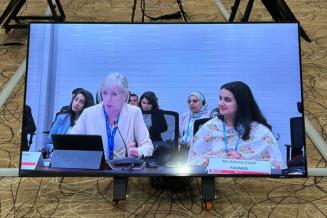
Education has a central role in people's lives since schools and educational spaces and centers are fundamental for socialization to understand the collective good.
By the end of 2025, the curricula taught in all school types and grades will be revised to ensure that they address the issues of environment and climate change in line with sustainable development.
On the road to COP28: Greening Education Partnership, a global mechanism for climate change education
As a concrete mechanism to mainstream climate change education, UNESCO hosted the Inaugural meeting on Greening Education Partnership: Getting every learner climate-ready at COP27, which followed the launch of the Greening Education Partnership at the UN Transforming Education Summit in September as a global initiative to accelerate climate change education in countries Together with the representatives of UK and Japan, several key players in this field, including Dubai Cares, Global Partnership for Education, UNICEF, UN Special Rapporteur on the promotion of human rights in the context of climate change, Education International, Plan International, WFP, ILO, Aga Khan Foundation and UNEP, discussed good practices, reaffirmed the need for coordinated and comprehensive action, and mobilize increased investment to support Member States in scaling up good quality education to prepare leaners to be climate-ready, in particular through the establishment of a Multi-Partner Trust Fund. As the newly formed coalition of member states and key actors, the Greening Education Partnership will carry forward the momentum of transforming education on climate change.
The Greening Education Partnership aims to support all countries and communities to accelerate transformation focusing on 4 pillars: greening schools, greening learning, greening teachers’ capacity and readiness, and greening communities.
The curriculum will feel super relevant to every child. It's about their school, their route to get to school in the morning and their community, but also it will feel really empowering that they're part of the solution and they can contribute to addressing climate change.
The more we can do to support students to have a genuine seat at the table, the more likely we are to see the kind of radical change we need
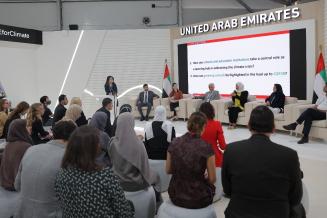
To build upon the momentum on the role of education which was catalysed at Glasgow and Sharm el-Sheikh, UNESCO together with UNFCCC and the UN Resident Coordinator’s Office of United Arab Emirates convened a session on greening schools, calling for climate change education to be placed as one of the key agenda of COP28 in Dubai, UAE in November 2023.
We'll hear a call to initiate and discuss as many collaborations as possible so we can create that impact at COP 28 and design a legacy that will live beyond that date.


